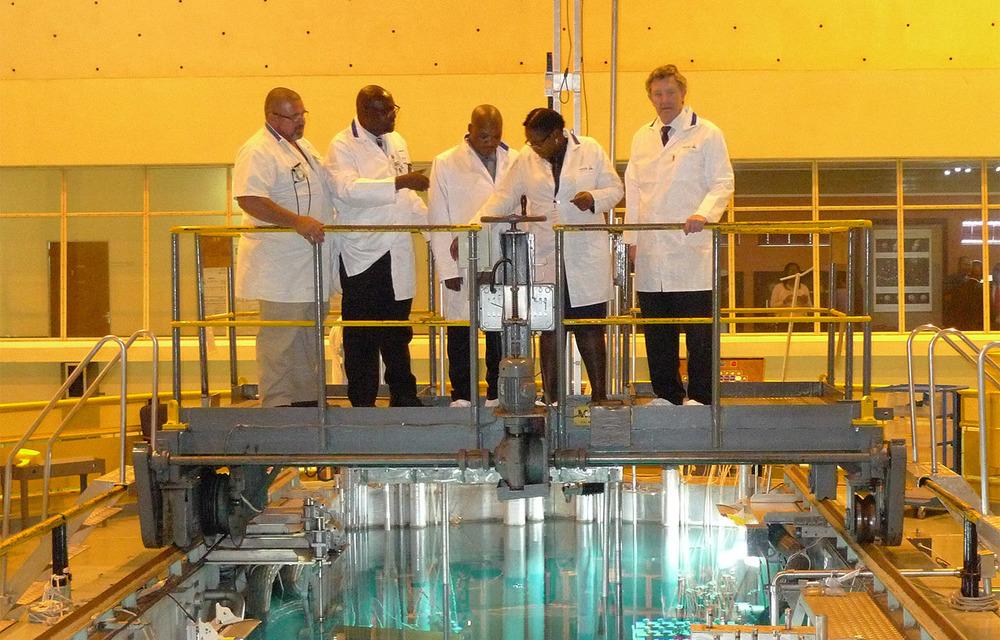Explore Our Bill Payment Services:

- Salary And Allowance
- Engineers Salary
- South Africa
Salary And Allowance Structure Of Agricultural Engineers In South Africa
Agriculture remains one of the pillars of South Africa’s economy, and behind the scenes, Agricultural Engineers are the professionals driving innovation, efficiency, and sustainability in this sector. They design modern irrigation systems, develop agricultural machinery, create eco-friendly farming solutions, and ensure that food production keeps pace with population growth. But one important question many aspiring professionals and graduates ask is: what does an Agricultural Engineer in South Africa actually earn, and what allowances or benefits come with the job?
This blog post takes a deep dive into the salary structure, allowances, and career expectations of agricultural engineers in South Africa as of 2025. From entry-level opportunities to senior-level packages, plus bursaries and training stipends for students, this article provides a full picture of what to expect.
National Averages and Salary Variances
The salary of an agricultural engineer in South Africa varies based on factors such as education, location, experience, and sector (public or private). On average, an agricultural engineer earns about ZAR 29,200 per month, which equals ZAR 351,000 per year. However, the range is quite broad: from around ZAR 14,300 for beginners to about ZAR 45,600 per month for highly experienced professionals.
Other surveys place the average annual base salary slightly higher, at around ZAR 379,000 per year, with starting salaries between ZAR 23,000 – ZAR 27,000 and maximums stretching up to ZAR 670,000 – ZAR 770,000 annually. Bonuses are also a significant part of the compensation structure, ranging from as little as ZAR 1,000 to as much as ZAR 690,000 per year, depending on performance, position, and company profits. Profit-sharing options, though less common, may add an extra ZAR 5,000 to ZAR 16,000 annually.
This wide variation highlights how much career stage, sector, and specialization matter in determining earnings.
Salary Growth by Experience
Experience is the single most important factor influencing salaries in agricultural engineering. Let’s break it down:
-
0–2 years (entry-level): about ZAR 205,000 annually.
-
2–5 years (junior professional): around ZAR 263,000 annually, marking a significant 29% jump.
-
5–10 years (mid-career): salaries average ZAR 362,000 per year, another increase of about 38%.
-
10–15 years (established professional): earnings rise to ZAR 448,000 annually, a 24% increase from mid-level.
-
15–20 years (senior professional): salaries grow moderately to ZAR 480,000 annually.
-
20+ years (veteran/expert): about ZAR 510,000 per year, showing that growth levels off later in one’s career.
This clearly illustrates that the most dramatic jumps in pay happen within the first 10 years. Ambitious young professionals who work hard and upskill themselves can double their salaries within their first decade.
The Role of Education in Salary Levels
Education significantly impacts salaries in agricultural engineering. A Bachelor’s degree holder typically earns around ZAR 21,200 per month. On the other hand, a Master’s degree holder commands about ZAR 34,000 per month, which is roughly a 60% increase.
Annually, Bachelor’s degree holders average about ZAR 255,000, while Master’s graduates average ZAR 407,000. Clearly, investing in postgraduate studies pays off in the long run. A master’s degree not only boosts your earning potential but also improves your chances of landing leadership roles, research positions, or consultancy opportunities.
Regional Differences in Salary
Geography also influences pay. Salaries tend to be slightly higher in major urban centers where demand for agricultural innovation and agribusiness is high.
-
Johannesburg: Agricultural engineers earn an average of ZAR 28,100 per month, with salaries ranging between ZAR 15,000 – ZAR 42,000.
-
Cape Town: Salaries are a bit higher, averaging ZAR 30,600 per month, with a range of ZAR 15,900 – ZAR 46,700.
This means that agricultural engineers in Cape Town earn about 5–10% more than their peers in Johannesburg, largely due to the city’s strong agribusiness and agri-tech industries.
Summary of Salary Ranges
Here’s a quick overview of salary expectations across levels:
| Factor | Typical Salary Range | Notes |
|---|---|---|
| Entry-Level | ZAR 205k – 300k p.a. | Fresh graduates, limited experience |
| Mid-Level | ZAR 350k – 600k p.a. | 5–10 years of experience |
| Senior-Level | ZAR 700k – 1.2M p.a. | Experienced engineers, leadership roles |
| Specialists/Consultants | Up to ZAR 1.5M p.a. | Advanced or niche expertise |
| Public vs Private | Private often ~7% lower | Public sector tends to pay slightly more |
| Education Premium | +60% for Master’s degree | Major boost in earnings |
| Regional Premiums | Cape Town > JHB > national avg | 5–10% regional differences |
Allowances, Benefits, and Perks
Salary is only one part of the compensation package. Agricultural engineers in South Africa often enjoy several allowances and benefits that can significantly increase their total earnings.
Common Allowances and Perks:
-
Medical Aid: Many employers cover medical insurance as part of the package.
-
Retirement Plans: Contributions to pension or provident funds are often included.
-
Housing Allowance: More common in rural roles, to encourage relocation.
-
Transport Allowance: Covers commuting and travel for field assignments.
-
Professional Development: Employers may sponsor workshops, conferences, and certifications.
-
Bonuses and Incentives: Often performance-based, common in private sector jobs.
In some companies, these allowances and perks can add 10–20% to the base salary.
Insights from Job Postings
A job advertisement for an agricultural engineer in Johannesburg, for example, listed a salary range of ZAR 300,000 – 450,000 per year, plus additional benefits such as:
-
Health and wellness packages
-
Flexible working hours
-
Professional development opportunities
This shows that while the base salary may be competitive, the overall package often includes extras that make a significant difference.
Learnership Stipends for Emerging Professionals
For those entering the field through learnership programs, stipends are provided rather than salaries. These typically range from ZAR 2,000 to ZAR 4,000 per month, depending on the program level and employer size.
Though modest, these stipends provide essential support for students while they gain practical experience. They serve as a stepping stone toward full-time employment in the sector.
Bursaries and Training Allowances
Students pursuing agricultural engineering often have access to bursaries and scholarships, especially from government departments and large agricultural organizations. For instance, bursaries may cover:
-
Tuition fees
-
Accommodation
-
Books and study materials
-
Meals
-
A monthly allowance
-
Mentorship and internship opportunities
These bursaries significantly reduce the financial burden of studying and often guarantee practical work exposure upon graduation. Graduates typically step into jobs offering between ZAR 250,000 and 500,000 per year immediately after completing their degrees.
Realistic Expectations and Career Strategy
Entry to Mid-Level (First 5 Years)
Graduates can expect to earn ZAR 205,000 – 300,000 annually at entry-level. With 2–5 years of experience, salaries rise to ZAR 263,000 – 362,000. These first few years are crucial for building expertise and moving into mid-level positions.
Mid-Level to Senior (>5 Years)
With 5–10 years of experience, professionals earn ZAR 350,000 – 600,000 annually. Senior engineers and managers earn between ZAR 700,000 – 1.2 million, while top consultants or specialists can reach ZAR 1.5 million per year.
Influence of Education
A master’s degree almost guarantees significantly higher pay, often 60% more than a bachelor’s holder. This makes postgraduate education a wise long-term investment.
Role of Location
Cape Town offers slightly better salaries compared to Johannesburg, but rural roles may include added allowances like housing and transport.
Total Compensation vs Base Salary
When evaluating job offers, engineers should look at total compensation—benefits and allowances can raise actual earnings by 10–20% above the stated salary.
Closing Thoughts and Recommendations
As of 2025, agricultural engineering in South Africa offers attractive and steadily rising salaries. Here’s a recap:
-
Entry-level salaries: around ZAR 200k–300k per year.
-
Mid-career professionals: ZAR 400k–600k.
-
Senior engineers and consultants: ZAR 700k–1.5M.
-
Master’s degree holders: earn ~60% more than bachelor’s degree holders.
-
Allowances and benefits: boost total pay significantly.
-
Bursaries and stipends: support students and ease entry into the profession.
Recommendations for Aspiring Agricultural Engineers:
-
Invest in Education: A master’s degree is a game-changer for salary growth.
-
Focus on High-Impact Sectors: Precision agriculture, renewable technologies, and consultancy often pay more.
-
Consider Total Compensation: Look at allowances, bonuses, and perks—not just base pay.
-
Apply for Bursaries: Many government and private organizations provide full support.
-
Join Professional Networks: Organizations like the South African Institute of Agricultural Engineers (SAIAE) can connect you to opportunities.
Final Word
Agricultural engineering is not just a career—it’s a calling that shapes the future of food security and sustainability in South Africa. While the financial rewards are substantial, especially with experience and education, the allowances and career growth opportunities make it even more attractive. Whether you’re just starting out, pursuing postgraduate studies, or already working in the field, understanding the salary and allowance structure helps you plan wisely and make informed decisions about your career path.









